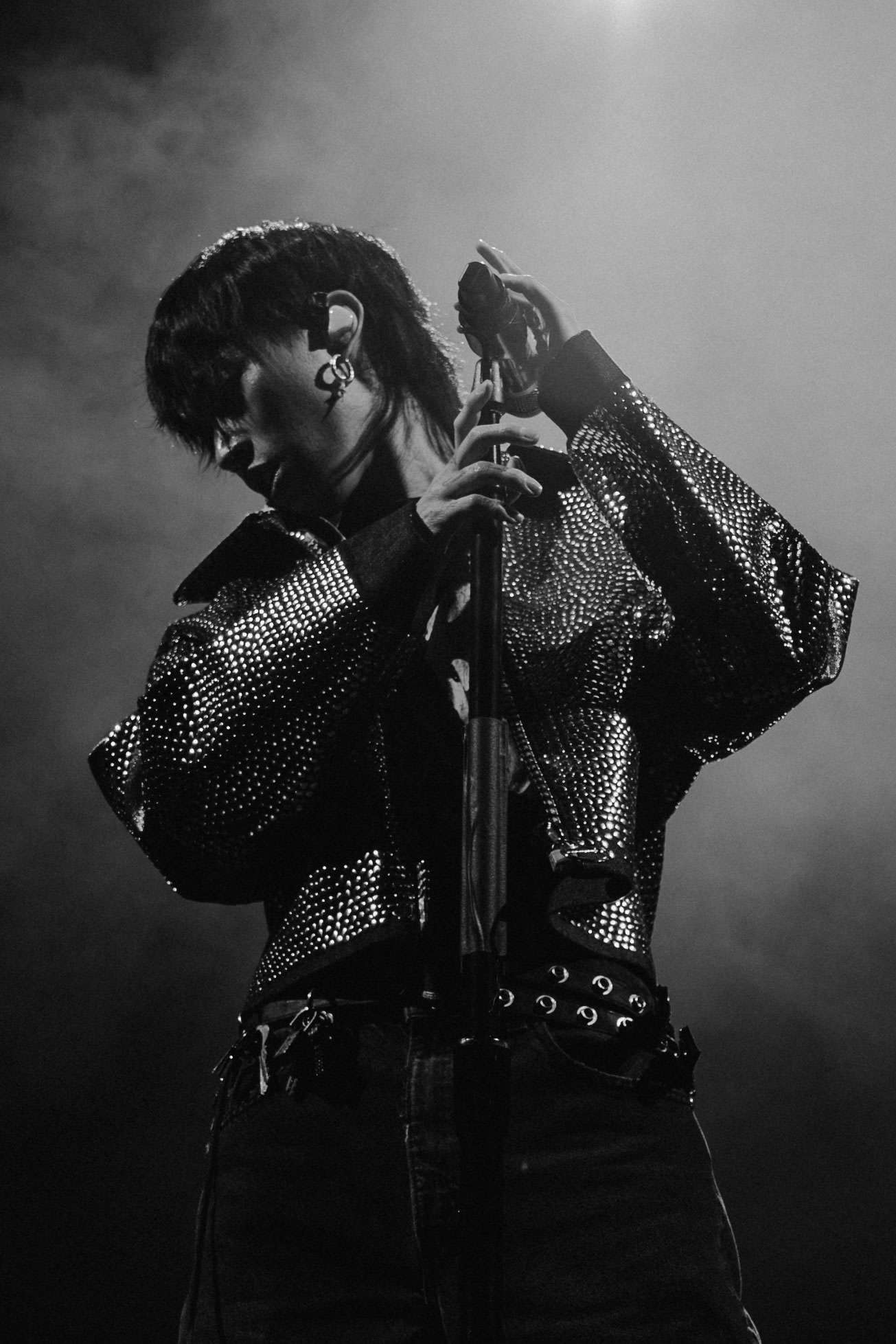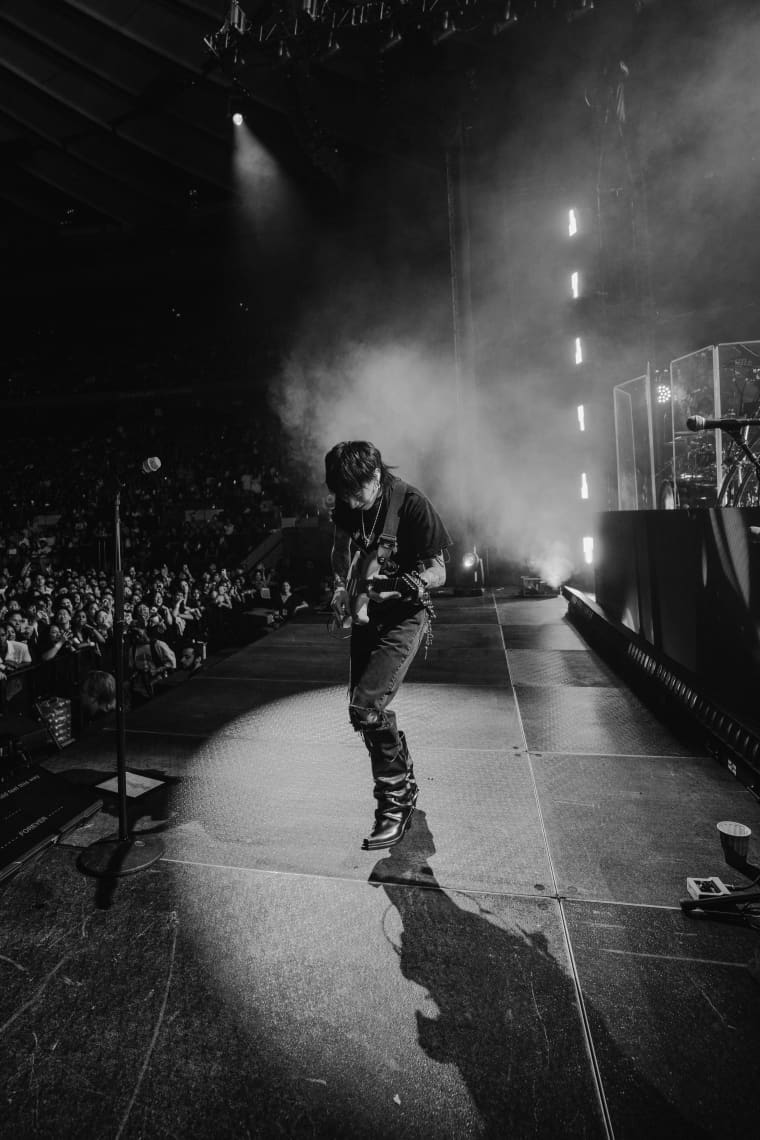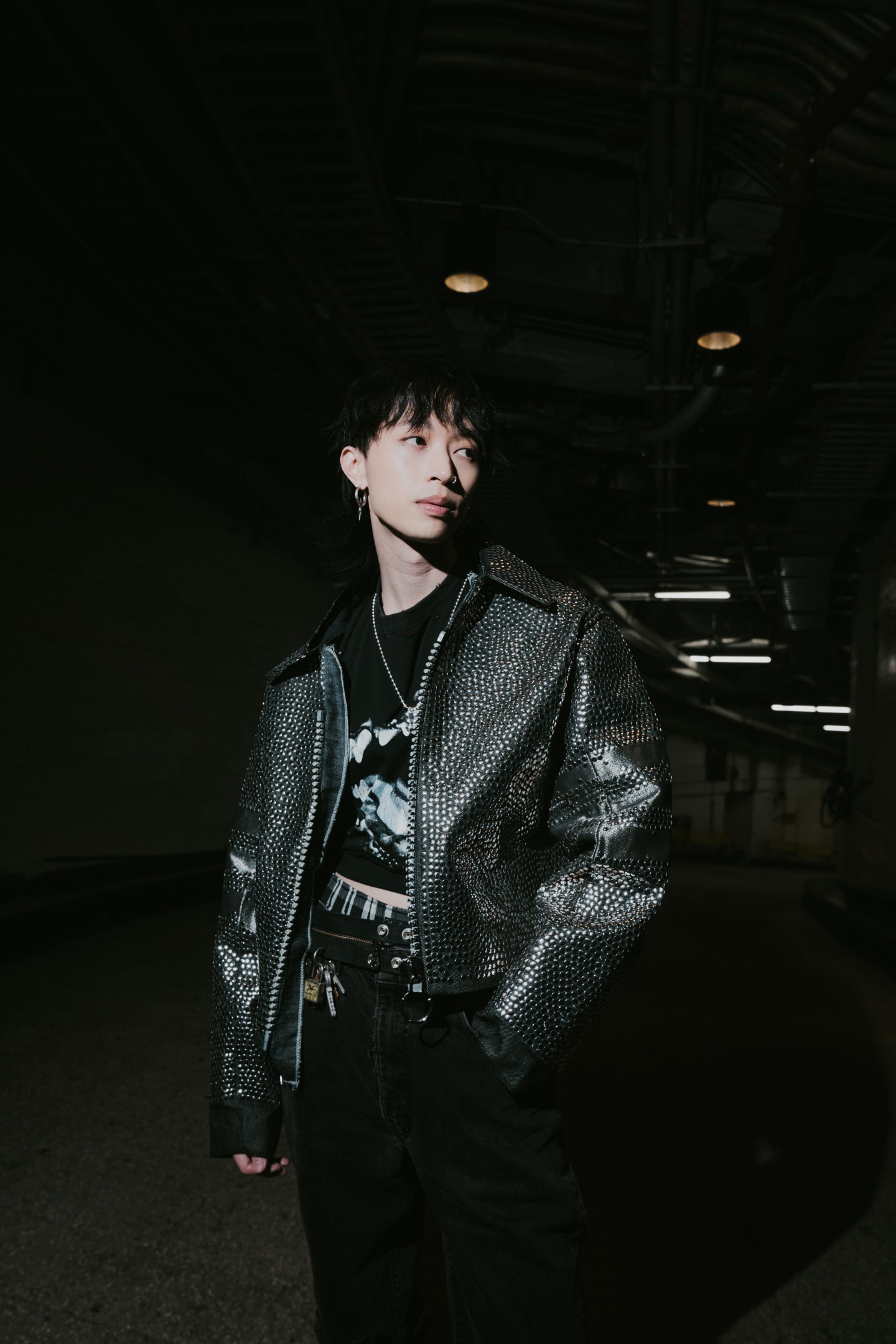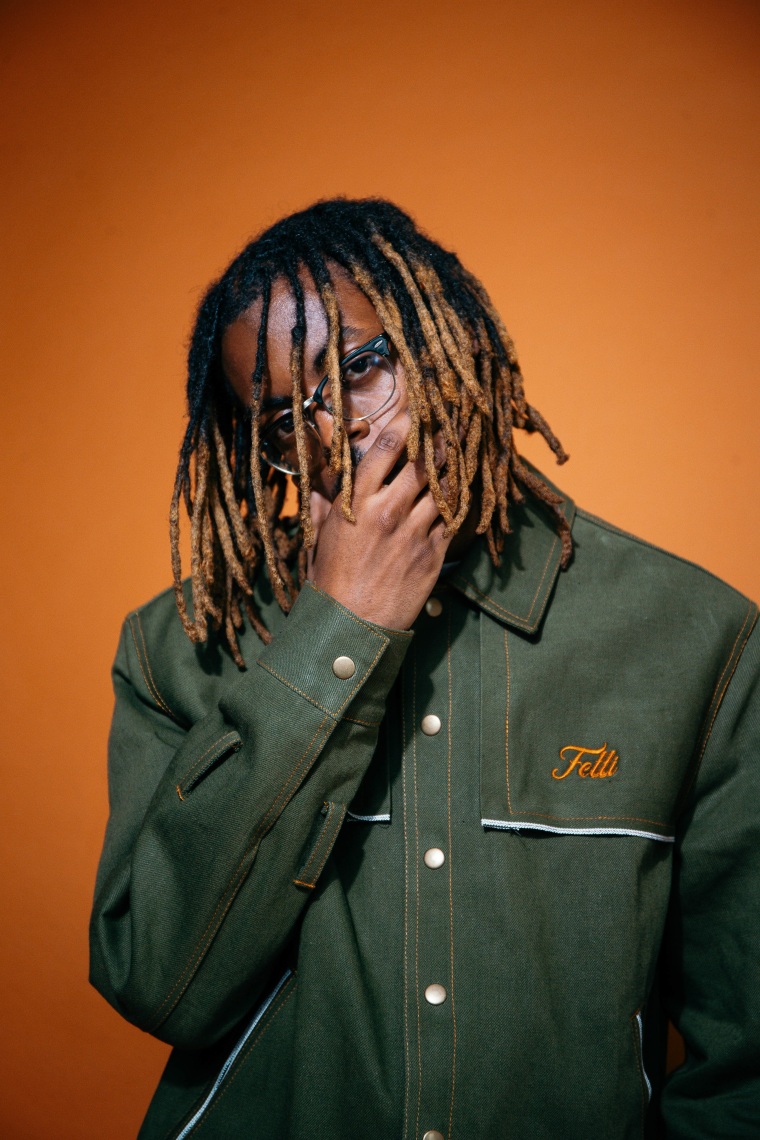Requiem”>
Photo by Kenji Chong
“I don’t pray to God, that’s a weakness,” keshi belts in the first minute he takes the stage at Madison Square Garden. There’s an arrogance to his opening song “Amen,” an overflow of hubris that’s bold and brash it practically teeters on aggressive. But the 30-year-old singer has every right to brag at his first-ever performance in the legendary arena, a testament to the past seven years of grueling hard work that launched him from an unknown in the suburbs of Houston to one of the most prominent Asian American musicians working today with a millions-strong audience. Tonight, nearly 11,000 of them are here screaming every lyric of his songs back to him.
When I connect with keshi over Zoom five days after the concert, the Vietnamese-American singer-songwriter is no longer the brazen, guitar-thrashing, leather-sporting musician that I watched just days prior. Chilling in his hotel room in Toronto, sporting black headphones and a simple white tee, he breezes through small talk with a casual nonchalance. It’s only when I bring up the show that keshi lights up. “It’s so hard to articulate,” he begins saying of the night while grinning from ear to ear. His friends have been bombarding him with questions about the experience but all he’s been able to formulate is: “There are too many emotions.”
 Requiem”>
Requiem”>
Kenji Chong
How does one articulate the experience of playing Madison Square Garden?
It was his biggest crowd to date, keshi says, and to top it all off, his fanbase, consisting mostly of 20-something Asian Americans, didn’t skip a word in screaming along to his 23-song setlist, which he says isn’t always the case at every venue. In between tracks, fans roared in unison demanding he take off his shirt. (“New York, I don’t do that shit anymore,” he ended up having to say on stage, before striking a bargain with the crowd that he’ll play an unreleased song, “WANTCHU,” instead.)
“That has been a recurring theme at every U.S. stop,” he laughs. “It’s very sweet. I just don’t feel my biggest at the moment, so I can’t entertain it unless I look and feel like a sexy Jay Park.” The most prominent emotion he says he’s feeling now that he’s been able to process it all a little is validation. “The crowd felt tangible. Like, wow, over 11,000 people are here to celebrate songs that I had written in my bedroom.”
The Houston native, born Casey Luong, has always been a self-described music fiend. He grew up on punk rock, acoustic emo, and John Mayer, who specifically inspired him to dip into songwriting and music-making. As a child, he learned how to play his grandfather’s classical guitar; by college, he was producing music on his laptop, using his self-taught knowledge to kick off his SoundCloud career under the moniker keshi (derived from how his childhood best friend’s parents, who are now his in-laws, would pronounce his name). For a while he juggled a double life as a rising SoundCloud star and an oncology nurse. After he garnered an army of listeners from early hits “If You’re Not the One for Me Who Is” and “2 soon,” keshi took a leap of faith — he resigned from the hospital on a day’s notice to pursue music full-time, inking a deal with Island Records in 2019.
His resumé is now a scroll of feats: In addition to magazine covers and regular photoshoots, he was on the soundtrack of Marvel’s Shang-Chi and the Legend of the Ten Rings, and has sold out tours across Asia, Europe, and North America. But perhaps his biggest accomplishment to date is his ability to mobilize an audience of mainly young Asian fans who find relatability and solace in his music (so much so that he and his music have transcended into a lighthearted if semi-controversial meme within the community). As an Asian American, he’s well-aware of the weight his accomplishments carry. “There haven’t been a lot of us at the forefront of entertainment,” he once said.
“Like, wow, over 11,000 people are here to celebrate songs that I had written in my bedroom.”
 Requiem”>
Requiem”>
Kenji Chong
keshi is now riding a crest in his career as he works his way through North America on his Requiem tour supporting his pivotal 2024 record of the same name. A project born out of the grief of losing a close collaborator — “I wanted it to feel appropriate for how I knew him,” he told Forbes in 2024 — it unexpectedly forays into pop more than his music ever has, a contrast from the usual lo-fi and R&B cues that catapulted his songs to multibillion-streams. It’s also his first album where he brought on collaborators; previous records, like his 2022 debut GABRIEL, were almost all written and produced solo. “I was always in a pop-leaning, alternative bag, but I was curious as to how I could make the immediacy and infectiousness of pop my own,” he says.
As if prophesying the stadiums he’d soon fill, keshi intended for each song to speak to thousands. “War” was written with a hook that an entire arena could scream back at him: “Since you wanna go to war / Let’s see who hurts the other more;” “Euphoria,” a heartbreak anthem that mourns a toxic relationship, packs a soaring, 80s-inspired guitar solo perfect for live performance. “Amen,” his self-assured pop affirmation, keshi says, is “a romanticization of my desire to make [art] that outlives me.” While keshi says he felt like he “ascended into the next level of making music” by learning to be more collaborative, he ultimately doesn’t think he’ll ever make an album like Requiem again, one that doesn’t allow him personally to “chip away at the marble.”
On a wider level, creating Requiem forced keshi to come to terms with his growing fame. He says he struggled with the spotlight at the end of the GABRIEL era, and would go into rooms and immediately feel claustrophobic, paranoid that people around him were watching, even if they weren’t. “If I’m eating, am I making a mess of myself? If somebody snuck a picture of me right now, how would I look?” he remembers thinking.
 Requiem”>
Requiem”>
Photo by Kenji Chong
 Requiem”>
Requiem”>
Photo by Kenji Chong
These days, keshi has a better relationship with his celebrity. A recent digital detox helped him gain some perspective and accept fame as an inevitable part of his life.
keshi doesn’t regret his decision to ditch his 9-to-5 for the glossy celebrity life, but he still struggles to find the words to describe his circumstances now. “I had a friend reach out to me after five years, and he said, ‘Dude, congratulations on all the success. I hope it’s everything you wanted,’” he recounts in a tone that feels like a mix of loss and pride. “I still think about that text.” What makes everything worth it for keshi is getting to witness the joy that he knows his music brings to other people. “If I do that, I can live a lifetime of happiness.”




